- Home
- Kathy Reichs
Bones to Ashes Page 2
Bones to Ashes Read online
Page 2
“I’m visiting my grandmother.” I didn’t mention Harry or Mama. Or Kevin. Or Daddy.
A Frisbee arced to earth between the girl and the ocean. I watched a boy scoop it and send it sailing with a backhanded toss.
“You can’t really go to Green Gables,” I said.
“Yes, you can.”
“It’s not real.”
“It is.” The girl worked one brown toe in the sand.
“Today is my birthday,” I said, at a loss to come up with anything better.
“Bonne fête.”
“That Italian?”
“French.”
My school in Beverly had offered French, the pet project of a Francophile nun named Sister Mary Patrick. Though my exposure had gone little beyond bonjour, I knew this girl sounded nothing like the language teacher who’d come to my first-and second-grade classes.
Lonely? Curious? Willing to listen to anything that transported me from the gloom in Gran’s big house? Who knows why? I bit.
“Was the prince with her?”
The girl nodded.
“What’s this Tracadie place like?” It came out “Track-a-day.”
The girl shrugged. “Un beau petit village. A small town.”
“I’m Temperance Brennan. You can call me Tempe.”
“Évangéline Landry.”
“I’m eight.”
“I’m ten.”
“Wanna see my presents?”
“I like your book.”
I settled back in my chair. Évangéline sat cross-legged in the sand beside me. For an hour we talked of Anne and that famous farm on Prince Edward Island.
Thus the friendship began.
The forty-eight hours following my birthday were stormy, the daytime sky alternating between pewter and sickly gray-green. Rain came in windblown bursts, streaming salty wash across the windows of Gran’s house.
Between downpours I begged to be allowed on the beach. Gran refused, fearing undertow in the swells breaking white on the sand. Frustrated, I watched from inside, but caught no sign of Évangéline Landry.
Finally, blue patches appeared and elbowed back the clouds. Shadows sharpened under the sea oats and the boardwalks traversing the dunes. Birds resumed discourse, temperatures rose, and the humidity announced that unlike the rain, it was not leaving.
Despite the sunshine, days passed with no sign of my friend.
I was biking when I spotted her walking along Myrtle Avenue, head tortoised forward, sucking a Popsicle. She wore flip-flops and a wash-faded Beach Boys T-shirt.
She stopped when I rolled up beside her.
“Hey,” I said, one sneaker dropping from pedal to pavement.
“Hi,” she said.
“Haven’t seen you around.”
“Had to work.” Wiping sticky red fingers on her shorts.
“You have a job?” I was awed that a kid be permitted such a grown-up pursuit.
“My uncle fishes out of Murrell’s Inlet. Sometimes I help out on the boat.”
“Neat.” Visions of Gilligan, Ginger, and the Skipper.
“Pfff.” She puffed air through her lips. “I scrape fish guts.”
We started walking, me pushing my bike.
“Sometimes I have to take care of my little sister,” I said, seeking to establish parity. “She’s five.”
Évangéline turned to me. “Do you have a brother?”
“No.” Face burning.
“Me neither. My sister, Obéline, is two.”
“So you have to clean a few fish. It’s still cool to spend the summer at the beach. Is it really different where you come from?”
Something glinted in Évangéline’s eyes, was gone before I could read it.
“My mama’s there. She got laid off at the hospital, so now she works two jobs. She wants Obéline and me to learn good English, so she brings us here. C’est bon. My aunt Euphémie and my uncle Fidèle are nice.”
“Tell me about this forest primeval.” I steered from the topic of family.
Évangéline’s gaze drifted to a passing car, came back to me.
“L’Acadie is the most beautiful place on Earth.”
And so it seemed.
All that summer Évangéline spun tales of her New Brunswick home. I’d heard of Canada, of course, but my childish imaginings went little beyond Mounties and igloos. Or dogsleds mushing past caribou and polar bears, or seals perched on ice floes. Évangéline spoke of dense forests, coastal cliffs, and places with names like Miramichi, Kouchibouguac, and Bouctouche.
She also spoke of Acadian history, and the expulsion of her ancestors from their homeland. Again and again I listened, asked questions. Astonished. Outraged at the North American tragedy her people call le Grand Dérangement. The French Acadians driven into exile by a British deportation order, stripped of their lands and rights.
It was Évangéline who introduced me to poetry. That summer we stumbled through Longfellow’s epic work, the inspiration for her name. Her copy was in French, her native tongue. She translated as best she could.
Though I barely understood the verse, she turned the story to magic. Our childish minds imagined the Acadian milkmaid far from her Nova Scotia birthplace. We improvised costumes and acted out the tale of the diaspora and its ill-fated lovers.
Évangéline planned to be a poet one day. She’d memorized her favorites, most French, some English. Edward Blake. Elizabeth Barrett Browning. The New Brunswick–born bard Bliss Carman. I listened. Together, we wrote bad verse.
I preferred stories with plots. Though the English was difficult for her, Évangéline tried my favorite authors: Anna Sewell. Carolyn Keene. C. S. Lewis. And, endlessly, we discussed Anne Shirley and imagined life at Green Gables farm.
In those days I hoped to become a veterinarian. At my instigation we kept notebooks on egrets in the marsh and on pelicans gliding high on the wind. We constructed protective walls around turtle nests. We trapped frogs and snakes with long-handled nets.
Some days we staged elaborate tea parties for Harry and Obéline. Curled their hair. Dressed them like dolls.
Tante Euphémie cooked us poutine râpée, fricot au poulet, tourtière. I can see her in her ruffle-strapped apron, telling stories of the Acadian people in broken English. Stories she’d heard from her father, he from his. Seventeen fifty-five. Ten thousand forced from their homes.
Where did they go? Harry would ask. Europe. The Caribbean. America. Those in Louisiana became your Cajuns.
How could such things happen? I would ask. The British wanted our farms and dikes. They had guns.
But the Acadians returned? Some.
That first summer, Évangéline planted the seed for my lifelong addiction to news. Perhaps because hers was such an isolated corner of the planet. Perhaps because she wanted to practice English. Perhaps simply because of who she was. Évangéline’s thirst for knowing everything was unquenchable.
Radio. Television. Newspapers. We absorbed and comprehended in our limited way. At night, on her porch or mine, June bugs banging the screens, transistor radio sputtering the Monkees, the Beatles, Wilson Pickett, the Isley Brothers, we spoke of a man with a rifle in a Texas tower. The deaths of astronauts. Stokely Carmichael and a strange group called SNCC.
At age eight, I thought Évangéline Landry the smartest and most exotic being I would ever know. She was beautiful in a dark gypsy way, spoke a foreign language, knew songs and poems I’d never heard. But, even then, despite the sharing of secrets, I sensed a reserve in my new friend, a mystery. And something else. Some hidden sadness of which she didn’t speak and which I could not identify.
The hot, muggy days rolled by as we explored our little Lowcountry island. I shared places familiar from previous visits with Gran. Together, Évangéline and I discovered new ones.
Slowly, as it inevitably does, my pain receded. My thoughts dwelled on new things. Pleasant things.
Then it was August and time to go.
Mama never returned to live in C
hicago. My life settled into a new comfortableness in Charlotte. I grew to love Gran’s old house in Dilworth, the smell of honeysuckle crawling the backyard fence, the leafy dark tunnel formed by willow oaks arcing our street.
I made friends, of course, but none as exotic as my summer soul mate. None who wrote poetry, spoke French, and had seen Green Gables and the Queen of England.
While apart, Évangéline and I exchanged letters containing news of our winter lives, our poetry, our preteen impressions of current events. Biafra. Why didn’t other countries feed these people? My Lai. Did Americans really kill innocent women and children? Chappaquiddick. Do celebrities have such troubles, too? We speculated on the guilt or innocence of Jeffrey MacDonald. Could any person be bad enough to kill his children? The evil of Charlie Manson. Was he the devil? We counted the days until summer with hash-marked calendars.
The school year ended earlier in Charlotte than in Tracadie, so I’d arrive first at Pawleys Island. A week later, madame Landry’s rusted Ford Fairlane would roll across the causeway. Laurette would spend one week at her sister and brother-in-law’s small house on the marsh, then return north to her jobs at a lobster cannery and a tourist motel. In August, she’d repeat the long trip.
In between, Évangéline, Obéline, Harry, and I lived our summer adventures. We read, we wrote, we talked, we explored. We collected shells. I learned about fishing for a living. I learned some bad French.
Our fifth summer unfolded like the previous four. Until July 26.
Psychologists say some dates remain permanently fixed in the mind. December 7, 1941. The Japanese attack on Pearl Harbor. November 22, 1963. President Kennedy assassinated. September 11, 2001. The World Trade Center in flames.
My list includes the day Évangéline disappeared.
It was a Thursday. The Landry children had been on the island six weeks, were scheduled to remain for another four. Évangéline and I planned to go crabbing early that morning. Other details remain as fragments.
Pedaling through a misty dawn, crab net angled across my handlebars. A car passing in the opposite lane, male silhouette at the wheel. Oncle Fidèle? One backward glance. One silhouette in back.
The tic tic tic of pebbles winged onto Évangéline’s bedroom window screen. Euphémie’s face through a barely cracked door, hair bobby-pinned, eyes red, lips dead white.
They are gone. You mustn’t come here again.
Gone where, ma tante?
Go away. Forget.
But why?
They are dangerous now.
Pedaling hard, tears streaming my cheeks, watching a car swallowed by fog on the causeway. Gone? No warning? No good-bye? No “I’ll write”? Don’t come back? Forget?
My friend and her sister never summered on Pawleys again.
Though I returned over and over to the small house on the marsh, begging for information, I was always rebuffed. Tante Euphémie and Oncle Fidèle never spoke to me except to repeat “You must go. They are not here.”
I wrote letter after letter. Some came back undelivered, others did not, but there was no response from Évangéline. I asked Gran what I could do. “Nothing,” she said. “Events can alter lives. Remember, you left Chicago.”
Distraught, I swore to find her. Nancy Drew could do it, I told myself. And I tried, as much as a twelve-year-old was able in the days before cell phones and the Internet. For the rest of that summer and into the next, Harry and I spied on Tante Euphémie and Oncle Fidèle. We learned nothing.
Back in Charlotte, we persisted. Though the libraries within our small orbit kept no phone directories for New Brunswick, Canada, we managed to obtain an area code for Tracadie-Sheila. There were more Landrys in the region than the operator could sort without a first name.
Laurette.
No listing. Thirty-two L. Landrys.
Neither Harry nor I could recall mention of Évangéline’s father’s name.
Realization. Through all those long days and nights, Évangéline and I had talked of boys, sex, Longfellow, Green Gables, Vietnam. By some unspoken agreement, we’d never ventured into the subject of fathers.
Using a pay phone and coins from our banks, Harry and I phoned every L. Landry in Tracadie. Later we tried the surrounding towns. No one knew of Évangéline or her family. Or so they said.
My sister lost interest in sleuthing long before I did. Évangéline had been my friend, five years Harry’s senior. And Obéline had been too young, half a lifetime Harry’s junior.
In the end, I, too, gave up searching. But I never stopped wondering. Where? Why? How could a fourteen-year-old girl be a threat? Eventually, I grew to doubt my recall of Tante Euphémie’s words. Had she really said “dangerous”?
The emptiness left by Évangéline was a void in my life until high school crowded out reflection and regret.
Kevin. Daddy. Évangéline. The ache of that triple whammy has faded, dulled by the passage of time and displaced by the press of daily living.
But, now and then, a trigger. Then memory rears up in ambush.
3
I’ D BEEN IN MONTREAL A FULL HOUR WHEN LAMANCHE PHONED. Until then, my June rotation to the recently thawed tundra on the St. Lawrence had gone swimmingly.
The flight from Charlotte and the connection from Philadelphia had both operated on time. Birdie had given me minimal grief, protest-meowing only during takeoffs and landings. My luggage had touched down with me. Arriving home, I’d found my condo in reasonably good shape. My Mazda had started on the very first try. Life was good.
Then LaManche rang my mobile.
“Temperance?” He, alone, rejected the more user-friendly “Tempe” employed by the rest of the world. My name rolled off LaManche’s tongue as a high Parisian “Tempéronce.”
“Oui.” My brain kicked into French mode.
“Where are you?”
“Montreal.”
“So I thought. Your trip was good?”
“As good as it gets.”
“Air travel is not what it was.”
“No.”
“You will come early tomorrow?” I sensed tension in the old man’s voice.
“Of course.”
“A case has arrived that is…” Slight hitch. “…complicated.”
“Complicated?”
“I think it best to explain personally.”
“Eight o’clock?”
“C’est bon.”
Disconnecting, I felt a vague sense of trepidation. LaManche rarely phoned me. When he did, it was never good news. Five bikers torched in a Blazer. A woman facedown in a senator’s pool. Four bodies in a crawl space.
LaManche had been a forensic pathologist for over thirty years, directed our medico-legal division for twenty of that. He knew I was scheduled back today, and that I’d report to the lab first thing in the morning. What could be so complicated that he felt the need to double check my availability?
Or so gruesome.
As I unpacked, shopped, stocked the fridge, and ate a salade Niçoise, my mind conjured up scenarios, each worse than the last.
Climbing into bed, I decided to bump my arrival to 7:30 A.M.
One upside to air travel is that it wears you out. Despite my apprehension, I drifted off during the eleven o’clock news.
The next day dawned as if auditioning for a travel brochure. Balmy. Breezy. Turquoise skies.
Having commuted to Quebec for more years than I care to admit, I was certain the climatic fluke would be short-lived. I wanted to bike in the country, picnic on the mountain, Rollerblade the path along the Lachine canal.
Anything but face LaManche’s “complicated” issue.
By seven-forty I was parked at the Édifice Wilfrid-Derome, a T-shaped high-rise in a working-class neighborhood just east of centre-ville. Here’s how the place works.
The Laboratoire de sciences judiciaires et de médecine légale, the LSJML, is the central crime and medico-legal lab for the entire province of Quebec. We’ve got the building’s top two floo
rs, twelve and thirteen. The Bureau du coroner is on ten and eleven. The morgue and autopsy suites are in the basement. The provincial police, La Sûreté du Québec, or SQ, occupies all other space.
Swiping my security card, I passed through metal gates, entered the restricted LSJML / Coroner elevator, swiped again, and ascended with a dozen others mumbling “Bonjour” and “Comment ça va?” At that hour, “Good morning” and “How’s it going?” are equally perfunctory no matter the language.
Four of us exited on the twelfth floor. After crossing the lobby, I swiped a second security card, and passed into the lab’s working area. Through observation windows and open doors I could see secretaries booting computers, techs flipping dials, scientists and analysts donning lab coats. Everyone mainlining coffee.
Past the Xerox machines, I swiped again. Glass doors swooshed, and I entered the medico-legal wing.
The board showed four of five pathologists present. The box beside Michel Morin’s name said: Témoignage: Saint-Jérôme. Testimony in Saint-Jérôme.
LaManche was at his desk, assembling the case list for that morning’s staff meeting. Though I paused at his door, he remained hunched over his paperwork.
Continuing along the corridor, I passed pathology, histology, and anthropology/odontology labs on my left, pathologists’ offices on my right. Pelletier. Morin. Santangelo. Ayers. Mine was last in the row.
More security. Good old-fashioned lock and key.
I’d been away a month. The place looked like I’d been gone since we occupied the building.
Window washers had displaced the framed pictures of my daughter, Katy, and all other memorabilia from the windowsill to a filing cabinet top. Floor polishers had then placed the wastebasket and two plants on the conveniently emptied sill. New CSU coveralls and boots had been heaped on one chair, clean lab coats draped on another. My laminated Dubuffet poster had nosedived from the wall, taking out a pencil holder.
My desk was mounded with materials forwarded from my mail slot in the secretarial office. Letters. Fliers. Ads. In addition, I could identify the following: an updated list of personnel telephone extensions; four packets of prints from Section d’identité judiciaire photographers; two sets of antemortem X-rays and two medical dossiers; a copy of Voir Dire, the LSJML gossip sheet; and three demande d’expertise en anthropologie forms. Three requests for anthropological analysis.

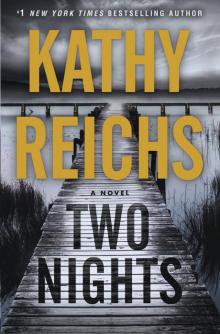 Two Nights
Two Nights The Bone Collection: Four Novellas
The Bone Collection: Four Novellas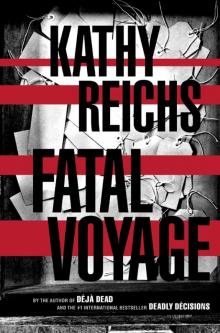 Fatal Voyage
Fatal Voyage 206 Bones
206 Bones Bones to Ashes
Bones to Ashes Terminal
Terminal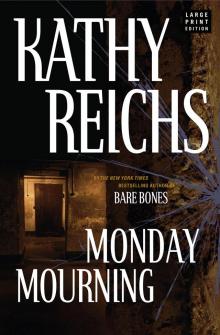 Monday Mourning
Monday Mourning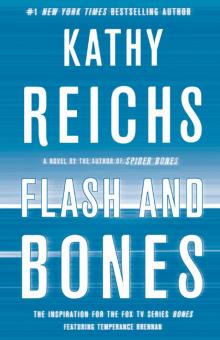 Flash and Bones
Flash and Bones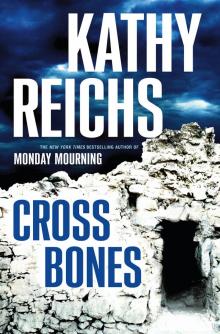 Cross Bones
Cross Bones Devil Bones
Devil Bones Break No Bones
Break No Bones Swamp Bones
Swamp Bones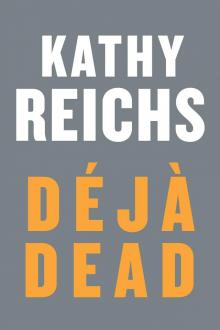 Déjà Dead
Déjà Dead Shock
Shock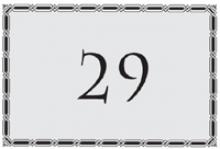 Spider Bones
Spider Bones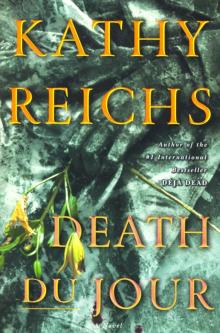 Death Du Jour
Death Du Jour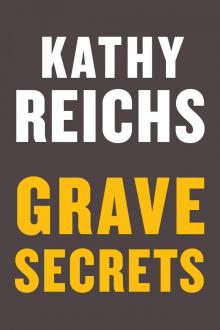 Grave Secrets
Grave Secrets Trace Evidence: A Virals Short Story Collection
Trace Evidence: A Virals Short Story Collection Bones on Ice
Bones on Ice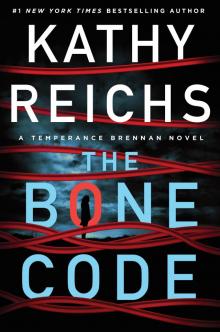 The Bone Code
The Bone Code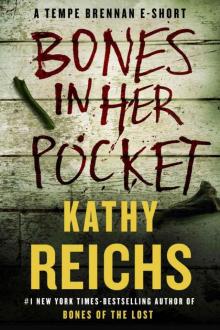 Bones in Her Pocket
Bones in Her Pocket Seizure:
Seizure: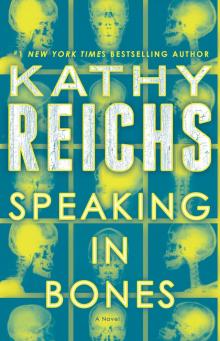 Speaking in Bones
Speaking in Bones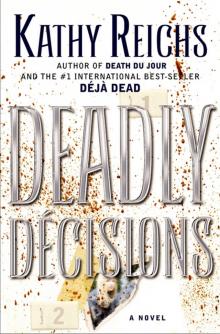 Deadly Decisions
Deadly Decisions Spike
Spike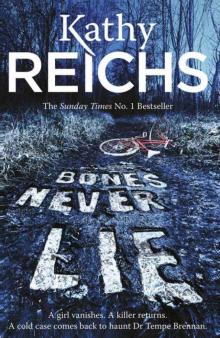 Bones Never Lie
Bones Never Lie Bones of the Lost
Bones of the Lost Virals 03.5 - Swipe
Virals 03.5 - Swipe Exposure
Exposure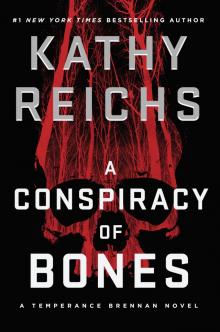 A Conspiracy of Bones
A Conspiracy of Bones Shift (tory brennan)
Shift (tory brennan) Bones of the Lost: A Temperance Brennan Novel tb-16
Bones of the Lost: A Temperance Brennan Novel tb-16 Virals tb-1
Virals tb-1 Bones Are Forever tb-15
Bones Are Forever tb-15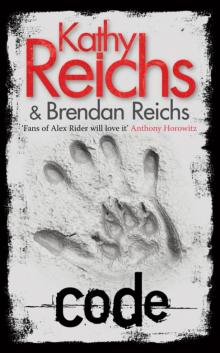 Code tb-3
Code tb-3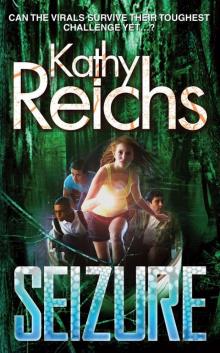 Seizure tb-2
Seizure tb-2 Deadly Descisions
Deadly Descisions Spider Bones: A Novel
Spider Bones: A Novel